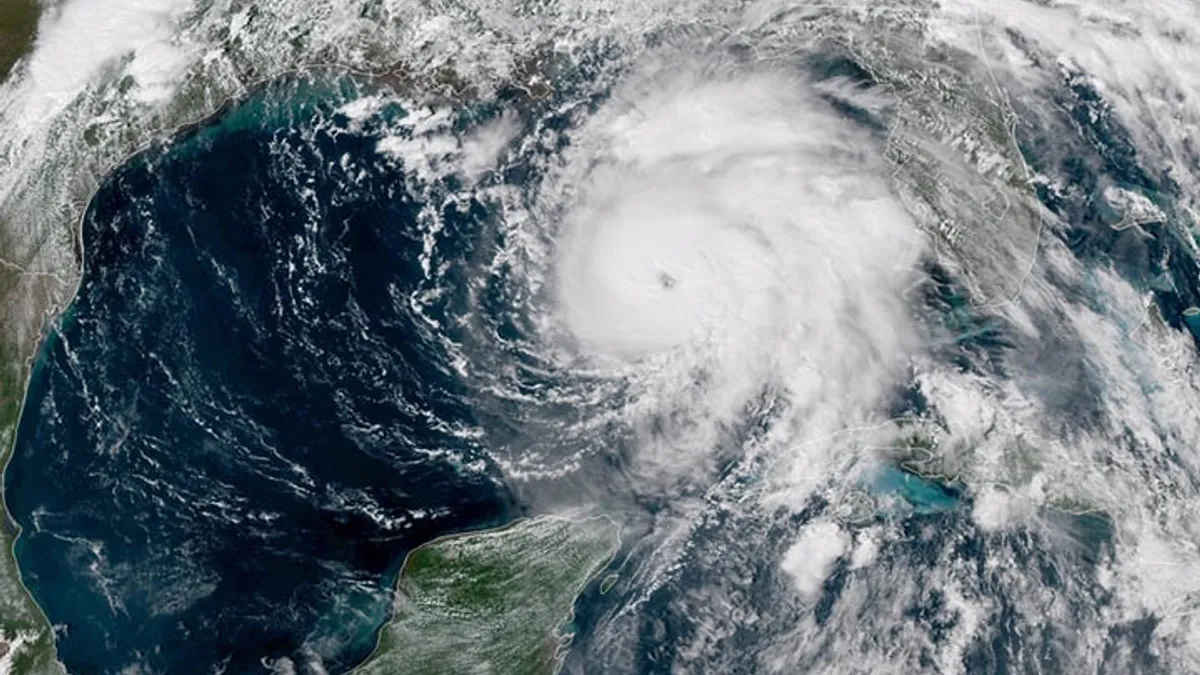Dive Brief:
-
Utilities in perennially hurricane-threatened Florida will soon be permitted to more easily raise funds for storm-hardening measures like burying power lines, a project estimated to cost at least $50 billion.
-
The state’s Public Service Commission (PSC) moved ahead on Tuesday with new rules that change the way storm-protection projects are financed. They will allow utilities to bypass the stringent rate review previously required to add storm expenses to base rates. Consumer groups expect customers’ energy bills to rise to pay for the work.
-
But the PSC voted on Tuesday against allowing utilities to end a 30-year program that incentivizes conservation measures like buying energy-efficient products under the Florida Energy Efficiency and Conservation Act (FEECA).
Dive Insight:
As the frequency and severity of storms increase, utilities are increasing efforts to protect their systems and improve recovery times from severe weather events.
On Tuesday the PSC approved proposed rules outlined in the storm protection plan cost recovery bill (SB 796) passed by the state legislature earlier this year and signed by Governor Ron DeSantis, R-FL. Under the rules, Florida utilities will soon be allowed to create separate charges for the projects based on a three-year estimate of costs, and to profit from the storm-hardening work.
The approval affects utilities across the state, including Florida Power & Light (FPL), Duke Energy, Gulf Power and Tampa Electric.
FPL, the state’s largest utility, has told shareholders that it expects to spend up to $4 billion before 2022 and could spend as much as $35 billion on storm protection measures over the next 25 years. On Tuesday, FPL applauded the new rules. “It is time to move forward with this initiative that will enhance the reliability of service to our current and future customers in a prudent, forward-thinking and cost-effective manner,” spokesman Bill Orlove said in a statement.
The Florida Office of Public Counsel (OPC), which represents the public in rate cases, had warned that because utilities are already allowed to charge customers for storm-hardening through programs the PSC approved in base rates, utilities could bundle projects together and double-bill customers under the new rules.
The OPC will “be taking a hard look at our options following yesterday’s disappointing decision,” attorney J.R. Kelly told Utility Dive. Kelly said the OPC would most likely appeal the PSC’s unanimous Tuesday approval to the Division of Administrative Hearings, which would delay the process.
Also on Tuesday, regulators voted 4-1 to extend the energy-efficiency programs under FEECA, established in 1980, for another five years. Consumer groups called the vote a “mixed bag.” Under FEECA, the utilities are allowed to offer programs like home energy audits, attic insulation, LED light bulbs, and water-heater wraps, and to charge the cost of the programs to customers.
“The current goals are a lot better than zero, but they still put us 45th in the nation when it comes to energy efficiency,” Bradley Marshall, attorney for the nonprofit Earthjustice, told Utility Dive. The organization represented the Southern Alliance for Clean Energy and the League of United Latin American Citizens in the matter.
Duke Energy "will be evaluating today’s [energy efficiency] decision and how it impacts the current programs,” spokeswoman Peveeta Persaud said in a written statement.














